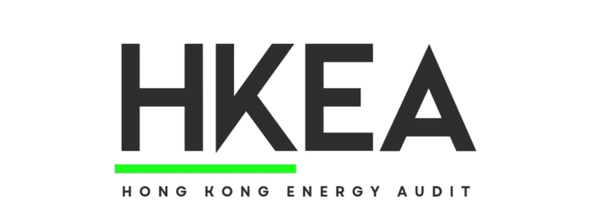
Requirements for taking the CIBSE CEng?
What are the conditions and assessment criteria for taking the CEng (Chartered Engineer) exam through CIBSE (The Chartered Institution of Building Services Engineers)? To become a CEng British Chartered Engineer in Hong Kong, you need to pass the British Engineering Council (Engineering Council) institute in Hong Kong or other recognized institutions. CIBSE has a high degree of recognition in the building services/equipment industry in Hong Kong, so many projects Personnel will apply for CEng at CIBSE and become CIBSE's academic members.
The British Engineering Council is the regulatory body for the British engineering industry. It is responsible for the registration of Chartered Engineers, Incorporated Engineers and Engineering Technicians, and provides services for students, engineers, employers and schools. Registration Guidelines. To obtain this qualification, engineers in Hong Kong must now apply through the British Engineering Council, an affiliated institution regulated by it in Hong Kong, and CIBSE is one of the most recognized choices.

CIBSE 's assessment details for (Chartered Engineer) British Chartered Engineers:
Basic application requirements:
* Hold a British recognized bachelor's degree in engineering with honors (BSc Hon/BEng Hon) plus a recognized master's degree (MSc/MEng) or equivalent qualifications; or
* Hold a Hong Kong recognized Bachelor of Engineering degree with honors (BSc Hon/BEng Hon);
* At least four to six years of relevant work experience
If you are unable to meet the above academic requirements, you can also apply through the experience route, using experience examples to express and prove that the applicant or candidate has achieved a level of knowledge and understanding equivalent to a master's degree in engineering.
If you choose the experience path, you must already be an MCISBE, that is, a Member of CIBSE , before applying, and you need to prepare the following materials for CIBSE to approve your application.
* Completed CEng experience template.
*Updated Engineering Practice Report (since your MCIBSE interview).
* Your academic qualifications (if applicable).
* Show an organizational chart for your position.
* Your recommender's name and email address.
* Proof of identity (passport, driving license, national ID card, etc.).
* Credit or debit card – a £122 application fee is payable at this stage.
Ceng exam preparation:
* Degree certificate (and transcript) in English
* Engineering Practice Report EPR (Engineering Practice Report) of 4000-5000 words
*CEng Experience Template (if applicable)
* Resume
*Organizational chart - clearly shows your role
* Development action plan
* Demonstration of MCIBSE Competencies - Statement completed by your recommenders
* Name and email address of recommender
* Proof of your identity (passport, driving license, national ID card)
* Debit or credit card – You will pay the application and interview fees at the final stage. The application fee for current CIBSE members will be waived.
Recommender requirements
Applicants need a recommender to support them. The applicant and the recommender must have known you for at least one year and be willing to support your application. The applicant does not need to be in the same work unit as the recommender, but they need to meet any of the following requirements. :
*Member or academician of CIBSE
* CEng registered with any body designated by the Engineering Council
* Professionally registered within the construction industry (CIOB, RICS, RIBA)
Note: Direct relatives cannot serve as recommenders for CEng applicants

CIBSE assessment standards for (Chartered Engineer) British Chartered Engineers
Applicants will be expected to demonstrate competency and commitment in each area (A1-E5), consistent with their specific role. They will be more competent in some areas than others, however they will need to demonstrate at least an understanding of and familiarity with key competency aspects in all areas and demonstrate a higher level of competency in areas critical to their particular role.
A Knowledge and understanding
- A1 Maintain and extend a solid theoretical approach to enable you to develop your specific role.
Prove/Support
* Learn and develop new engineering knowledge in a different industry or role.
* Understand current and emerging technologies and technical best practices within your area of expertise.
* Develop a broader and deeper knowledge base through research and experimentation.
* Learn and develop new engineering theories and techniques in the workplace.
- A2 Develop technical solutions to unusual or challenging problems, leveraging your knowledge and understanding, and/or handle complex technical problems or situations with significant risk.
Prove/Support
* Conduct technical research and development.
* Develop new designs, processes or systems based on new or evolving technologies.
* Conduct complex and/or non-standard technical analysis.
* Develop solutions involving complex or multidisciplinary technologies.
* Develop and evaluate continuous improvement systems.
* Develop solutions in safety-critical industries or applications.
B Design, develop and solve engineering problems
- B1 Actively participate in the identification and definition of project needs, issues and opportunities.
Prove/Support
*Identifies projects or technical improvements to products, processes or systems.
* Prepare specifications, taking into account functional and other requirements.
* Establish user needs.
* Review specifications and bid documents to identify technical issues and potential improvements.
* Conduct technical risk analysis and identify mitigation measures.
* Consider and implement emerging technologies.
- B2 Determine appropriate investigations and studies required to complete engineering tasks and conduct these activities effectively.
Prove/Support
* Identify and agree on appropriate research methods.
* Investigate technical problems, identify potential solutions and determine factors needed to compare them.
* Identify and conduct physical tests or experiments, analyze and evaluate results.
* Conduct technical simulations or analyses.
* Prepare, present and agree design proposals, conduct appropriate risk analysis and consider cost, quality, safety, reliability, accessibility, appearance, suitability, security (including cyber security), intellectual property constraints and opportunities, and environmental impacts.
- B3 Implement engineering tasks and evaluate the effectiveness of engineering solutions.
Prove/Support
* Ensure that the application of the design produces appropriate practical results.
* Implement design solutions that consider key constraints, including appropriate attention to safety, sustainability and disposal or decommissioning.
* Identify and implement lessons learned.
* Evaluate existing designs or processes to identify deficiencies or potential improvements, including risk, safety and life cycle considerations.
* Proactively learn from feedback on results to improve future design solutions and establish best practices.
C Responsibility, management and leadership
- C1 Plans the efforts and resources required to implement major engineering tasks or projects.
Prove/Support
* Prepare budget and related work plan for project or task.
* Systematically review factors affecting project implementation, including safety, sustainability and disposal or decommissioning considerations.
* Conduct task or project risk assessments and identify mitigating measures.
* Lead the preparation and agreement of the implementation plan and approach statement.
* Negotiate and enter into arrangements with customers, colleagues, contractors and other stakeholders, including regulatory agencies.
* Ensure information flow is appropriate and effective.
- C2 Manage (organize, direct and control), orchestrate or schedule, budget and resource elements of major engineering tasks or projects.
Prove/Support
* Operate or define appropriate management systems, including risk registers and emergency response systems.
* Manage the balance between quality, cost and time.
* Monitor progress and associated costs and cost forecasts, taking appropriate action when needed.
* Establish and maintain appropriate quality standards within legal and regulatory requirements.
* Effectively interface with customers, contractors and other stakeholders.
- C3 Leads a team or technical specialty and assists others in meeting changing technical and management needs.
Prove/Support
* Negotiate goals and work plans with teams and individuals.
* Strengthen the team's commitment to professional standards.
* Lead and support team and individual development.
* Evaluate team and individual performance and provide feedback.
* Seek input from other teams or experts when needed and manage relationships.
* Provide expertise, guidance and input to the engineering team, engineers, customers, management and relevant stakeholders in your area of expertise.
* Develop and deliver taught modules at Masters level, or lead university research projects.
- C4 Promote continuous quality improvement and promote best practice.
Prove/Support
* Promote quality within the organization and its network of customers and suppliers.
* Develop and maintain operations to comply with quality standards such as ISO 9000, EQFM.
* Support or guide project evaluations and make recommendations for improvements.
* Implement and share the results of lessons learned.
D Communication and interpersonal skills
- D1 Communicate effectively with others at all levels, using English.
Prove/Support
* Prepare reports, drawings, specifications and other documents on complex matters.
* Lead, moderate, participate in and record meetings and discussions.
* Exchange information and provide advice to technical and non-technical colleagues.
* Participate in or interact with professional networks.
- D2 Clearly present and discuss proposals, reasons and conclusions.
Prove/Support
* Serve as an author on scientific papers or articles.
* Prepare and deliver presentations on strategic matters.
* Prepare bids, proposals or studies.
* Identify, negotiate and guide work to achieve shared goals.
- D3 Demonstrate personal and social skills and awareness of diversity and inclusion issues.
Prove/Support
* Know and manage your emotions, strengths and weaknesses.
* Remain confident and flexible when facing new and changing interpersonal situations.
* Identify, negotiate and work toward shared goals.
* Create, maintain and enhance productive working relationships and resolve conflicts.
* Support the needs and concerns of others, especially as they relate to diversity and inclusion.
E Personal and professional commitments
- E1 Understand and comply with relevant codes of conduct.
Prove/Support
* Demonstrate compliance with the CIBSE Code of Professional Conduct.
* Identify aspects of the code that are particularly relevant to your role.
* Understand the legal and regulatory frameworks relevant to your role and how to comply with them.
* Lead work within relevant legal and regulatory frameworks, including social and employment laws.
- E2 understands the safety implications of their role and manages, applies and improves safe systems of work.
Prove/Support
* Identify and assume their own obligations and ensure that others have similar responsibilities for health, safety and welfare matters.
* Ensure systems meet health, safety and welfare requirements.
* Develop and implement appropriate hazard identification and risk management systems and culture.
* Manage, evaluate and improve these systems.
* Apply good knowledge of health and safety legislation such as: HASAW 1974, CDM regulations, ISO 45001 and company safety policy.
- E3 Understand the principles of sustainable development and apply them at work.
Prove/Support
* Operate and act responsibly, taking into account the need to simultaneously advance environmental, social and economic outcomes.
* Provide products and services that maintain and enhance the quality of the environment and community and meet financial objectives.
* Recognize how sustainability principles (as outlined in the Engineering Directorate's Sustainability Guidance) apply in daily work.
* Understand and ensure stakeholder engagement in sustainable development.
* Use resources efficiently and effectively in all activities.
* Take action to minimize environmental impact within your area of responsibility.
- E4 Carry out and document continuing professional development (CPD) to maintain and enhance competence in their area of expertise.
Prove/Support
* Conduct an assessment of your own development needs.
* Plan how to meet personal and organizational goals.
* Carry out and record planned and unplanned CPD activities.
* Maintain evidence of competency development.
* Evaluate CPD results against any scheme.
* Assist others with their CPD.
- E5 Understands the ethical issues that may arise in their role and carries out their responsibilities in an ethical manner.
Prove/Support
* Understand the ethical issues you may encounter in your role.
* Give an example of how you have applied the Engineering Council's ethical principles.
* Give examples of how you apply or uphold the ethical principles of your organization or company.
We at HKEA have specially set up two Chartered Engineer (CEng) training courses for applicants or candidates at different stages. All course contents are designed by the chairman instructor Dr. Tse according to the Cibse assessment standards. The following are Dr. Tse's qualifications:
- CIBSE Interviewer
- BEng(Hons), PhD, CEng, FCIBSE, REA, WELL Faculty, LEED AP, SITES AP, BEAM Pro

EPR or PRR report evaluation service CEng-002
Suitable for:
* Have obtained CIBSE or IMechE chartered engineer qualifications and are preparing to prepare EPR or PRR to submit to CIBSE or IMechE or:
* The report has been prepared and ready to be submitted to CIBSE or IMechE
Course objectives and services:
*Chairman Tutor Dr. Tse will provide tool suggestions and guidelines for writing EPR or PRR
*Review your uploaded EPR or PRR
* Provide suggestions for improvements to the reports you upload
* Areas for improvement in the Zoom meeting review report
Chartered Engineer License Advanced Course - Interview Training (CEng-003)
Suitable for:
* The report has been submitted to CIBSE or IMechE and has been reviewed, and the interview invitation notification has been received
Course objectives and services:
* One-to-one interview training
* Improve your interview weaknesses
*Mock interview practice
* The instructor will randomly select questions from more than 200 frequently asked questions for special interview training
We welcome you to enroll in our British Chartered Engineer license training courses at HKEA at any time. Obtaining the CEng is very important for an engineer's career development. Since it is difficult to successfully obtain the CEng, our chairman tutor and team will try their best to help applicants or candidates master the exam. Depending on the required skills and requirements, you can choose to enroll in CEng-002 or/and CEng-003 according to your current stage. If you need our assistance or advice, please feel free to contact us for enquiries.

HKEA Team Qualifications:
1. More than 13 years of experience in the field of sustainable development, focusing on energy performance optimization.
2. Possess the qualification of Registered Energy Assessor (REA) and have rich background in building services engineering.
3. Expertise in implementing and optimizing energy efficiency measures in building systems.
4. Chartered Engineer with extensive technical and practical knowledge.
5. Member of the Hong Kong Green Building Council (HKGBC) committee, contributing to industry standards and practices.
6. Guest lecturer at the Chinese University of Hong Kong (CUHK) and the University of Hong Kong (HKU) to cultivate future industry leaders.
7. Actively participate in public speaking and present at industry seminars.
8. Published many papers and articles on sustainable development.
9. Proven track record of leading successful sustainability projects and achieving significant energy savings.
10. Passionate about driving innovation and continuous improvement in the field of sustainable development.
Blog article
View all-

【甚麼是註冊專業工程師?與特許工程師有甚麼分別?】
註冊專業工程師(Registered Professional Engineer, R.P.E) 身份資格由香港工程師註冊局根據《工程師註冊條例》頒發,代表該工程師透過嚴格審核,並具備專業知識、經驗,並獲得香港政府認可,可以執行與安全、技術有關的工程項目及簽署相關文件;特許工程師(Chartered Engineer) 身份資格由工程學會頌發,同時亦可晉身該工程學會會員,或透過互認獲取更多不同學會的會員身份,特許工程師同樣是一種專業認可,包括該工程師在工程技術、管理能力同職業操守方面等,而且可以擔任高級技術或管理職位,特許工程師的國際認可性高,兩者有甚麼分別?
【甚麼是註冊專業工程師?與特許工程師有甚麼分別?】
註冊專業工程師(Registered Professional Engineer, R.P.E) 身份資格由香港工程師註冊局根據《工程師註冊條例》頒發,代表該工程師透過嚴格審核,並具備專業知識、經驗,並獲得香港政府認可,可以執行與安全、技術有關的工程項目及簽署相關文件;特許工程師(Chartered Engineer) 身份資格由工程學會頌發,同時亦可晉身該工程學會會員,或透過互認獲取更多不同學會的會員身份,特許工程師同樣是一種專業認可,包括該工程師在工程技術、管理能力同職業操守方面等,而且可以擔任高級技術或管理職位,特許工程師的國際認可性高,兩者有甚麼分別?
-

Three types of professionals provide accredited...
The "Buildings Energy Efficiency (Amendment) Bill 2025" passed its third reading in the Legislative Council in 2025. The revised Buildings Energy Efficiency Ordinance has several key features, including the inclusion...
Three types of professionals provide accredited...
The "Buildings Energy Efficiency (Amendment) Bill 2025" passed its third reading in the Legislative Council in 2025. The revised Buildings Energy Efficiency Ordinance has several key features, including the inclusion...
-

[Chartered Engineer One-on-One Course]
Most high-tech and management-level engineering positions in Hong Kong, or those requiring independent design, project leadership, and innovative solutions, typically require applicants to hold a Chartered Engineer (CE) qualification. HKEA...
[Chartered Engineer One-on-One Course]
Most high-tech and management-level engineering positions in Hong Kong, or those requiring independent design, project leadership, and innovative solutions, typically require applicants to hold a Chartered Engineer (CE) qualification. HKEA...



